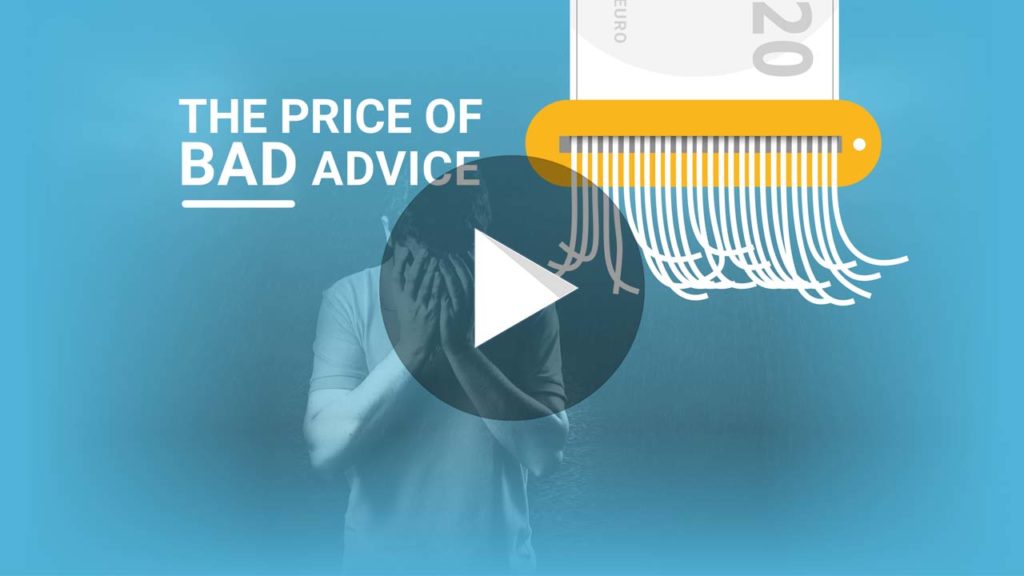This week, civil society organisations and industry associations are organising the first ever Europea Retirement Week, dedicated to discussing the future of pensions in Europe. This is a good opportunity for BEUC, the European Consumer Organisation, to remind policymakers that consumers need access to impartial financial advice to take adequate pension decisions.
The payment of ‘kick-backs’ or ‘commission’ frequently push advisers into making investment recommendations that do not have consumers’ best interest at heart. Solution: ban the payment of commission to advisers to ensure consumers get access to fair advice.
Ensuring consumers have an adequate income in retirement is a crucial issue for consumer organisations. Most people in the EU have access to some form of state pension when they , but many consumers top this up by making additional own pension savings. However, state pensions are unfortunately not always sufficient to ensure an adequate income in retirement and when it comes to assessing their personal pension situation, many consumers rely on financial advisers. Unfortunately, the quality of the advice given to consumers in Europe is too often unacceptably poor.
To highlight the risks consumers face with poor advice, BEUC launched a campaign called ‘the Price of Bad Advice,’ back in 2018. It includes a web-map of major mis-selling to have affected European consumers, including pension savers. Featuring over fifty different cases of mass mis-selling scandals in the last fifteen years, our web-map demonstrates the continuing inadequacy of financial advice.
Scandal after scandal
A recent European Commission Consumer Markets Scoreboard corroborates our findings: the retail investment market is one of the worst-performing markets for consumers. For this EU Retirement Week, we have updated our Price of Bad Advice web-map with new mis-selling cases, including a case involving the mis-selling of life insurance policies by Open Life in Poland and high-risk Alpine investment bonds in Austria.
Kick-backs frequently push advisers into making decisions that do not have consumers’ best interests at heart
The payment of commission played a key role in many of the mis-selling scandals on our map. Financial advisers often receive commission, or ‘kick-backs’ from investment or pension funds when advising consumers. Too often, financial ‘advice’ is little more than a commission-driven sales pitch, with advisers trying to sell consumers products that offer greater rewards for their bottom-line. While we all know that investments can go down as well as up, and that there is always an inherent risk, generous kick-backs frequently push advisers into making decisions that do not have consumers’ best interests at heart.

Kick-backs in action: credit, Finance Watch
For instance, in Spain, our member OCU recently warned consumers that the best-selling investment funds offered by the largest Spanish banks are often among the worst performing for consumers, while at the same time generating huge commission for the banks. In Norway, our member Forbrukerrådet carried out a study showing how the commission-based financial advice model often pushes consumers into expensive investment funds that are not in their best interest. Studies by EU authorities meanwhile show that high-cost investment funds, frequently promoted by financial advisers for the high commissions they attract, are often less likely to outperform their lower-cost alternatives.
The case for a ban
Fortunately, there are lessons that can be drawn from other European countries. In 2013, the UK and the Netherlands banned kick-backs in the wake of several mass mis-selling scandals. Financial advisers in these countries are no longer permitted to receive commissions from the providers of pension products. They are instead required to charge a separate up-front fee for the cost of advice to consumers.
Recent reviews by the UK and the Netherlands show that the reforms have had a profound impact in reducing conflicts of interests for advisers, who increasingly recommended simpler and lower-cost investment products. For instance, a study by the UK’s Financial Conduct Authority, found that while as much as 60% of British fund savings were injected into the most expensive investment funds prior to the ban, this had fallen to 20% almost two and a half years later.
Studies by the UK and the Netherlands show that the vast majority of consumers are willing to pay
Some argue that a ban would deter people from seeking financial advice, as consumers would be unwilling or unable to pay upfront fees for the cost of advice. However, studies by the UK and the Netherlands show that the vast majority of consumers are willing to pay, if advisers can demonstrate their added value. Since the ban, the number of financial advisers in the UK has actually grown (from 35,000 in 2012 to 36,400 in 2019) and consumers are increasingly seeking financial advice (4.1m consumers received advice in 2020, up from 3.1m in 2017).
There’s no such thing as a free lunch
Financial advice has never been free. Consumers in most European countries are charged for financial advice in a roundabout way (via the commission paid to advisers). This generally has to be disclosed now to consumers under EU law, but behavioural studies show that few consumers pay attention to these disclosures, and even fewer understand how commission might bias the advice they are given.
The European Commission is currently assessing how to ensure that consumers who wish to invest for their retirement can do so with sufficient confidence, as part of its Retail Investment Strategy, expected in 2022. During this European Retirement Week, we urge EU policymakers to consider as part of this Strategy introducing a Europe-wide ban on kick-backs to financial advisers. When it comes to securing a good pension, consumers must be able to rely on impartial and trustworthy financial advice.


